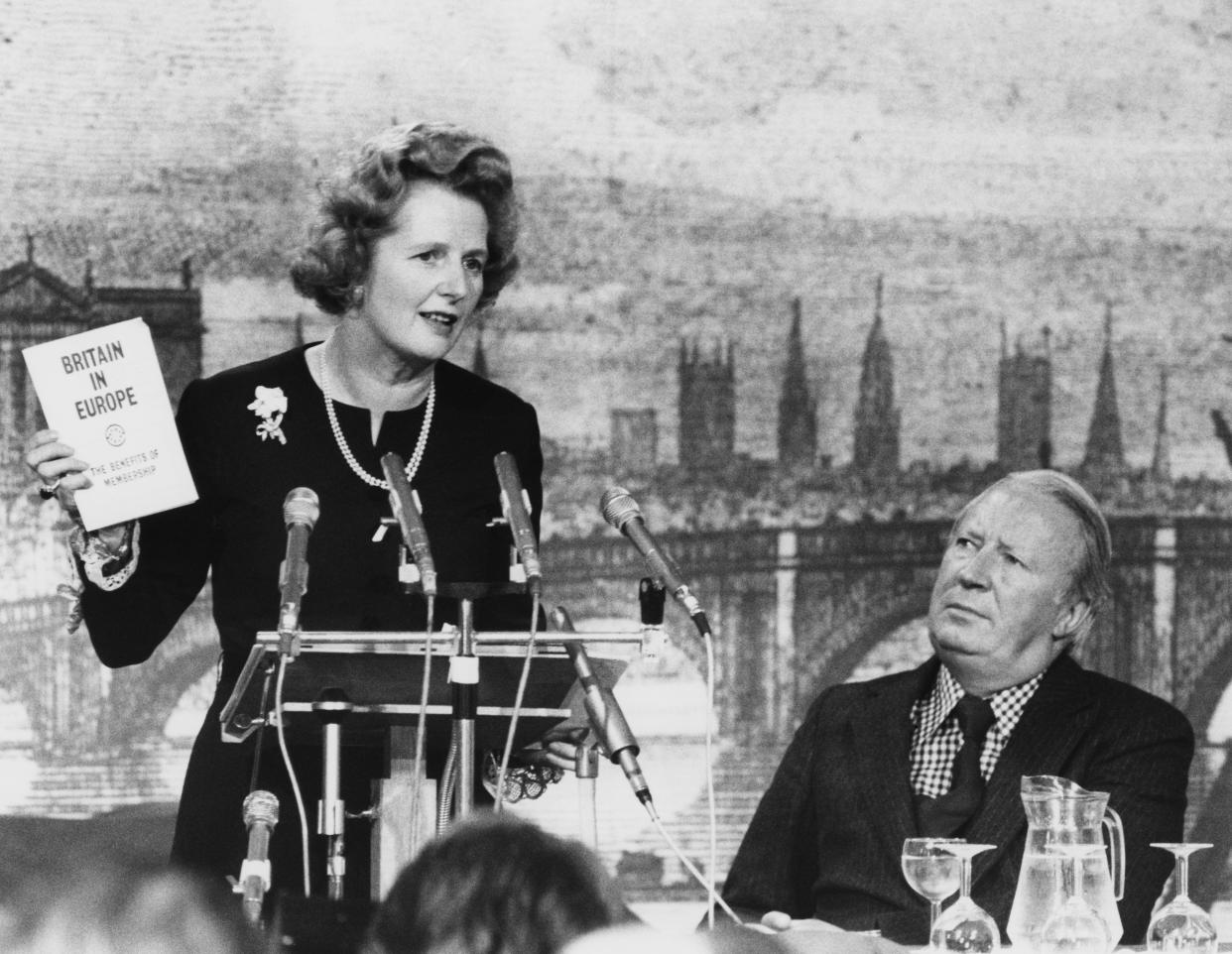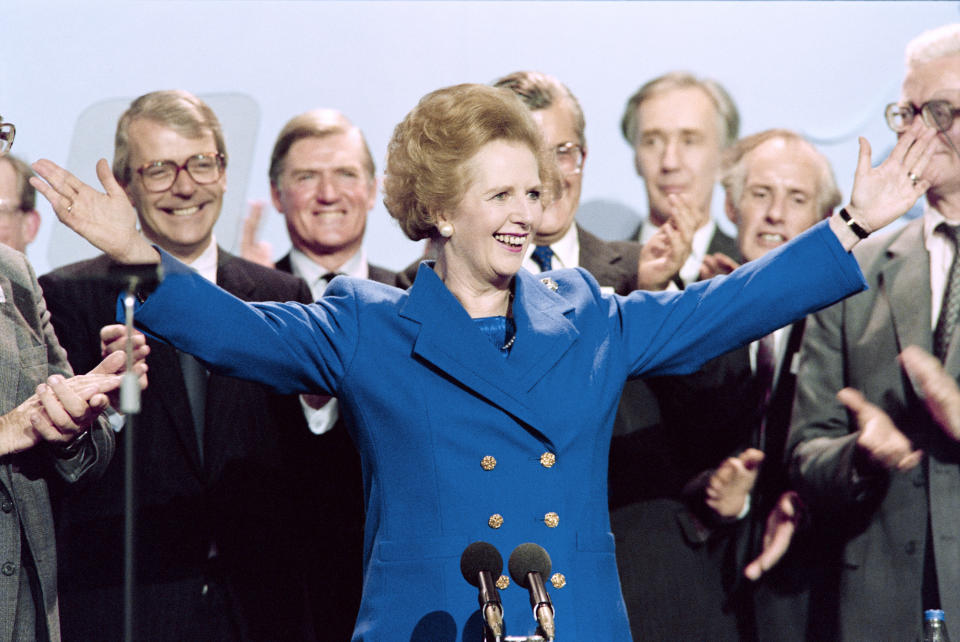Margaret Thatcher shortlisted to be on the £50 note — for being an 'ice cream pioneer' (not prime minister)

If you’re questioning why Margaret Thatcher, Britain’s first female prime minister, is being referred to as an “ice cream pioneer,” you’re not the only one.
An article for the New York Times reported: “Margaret Thatcher, Ice Cream Pioneer, Is Nominated as Face of £50 Note.”

Prior to becoming the “Iron Lady,” it seems, Thatcher was, in fact, a softie.
Here’s the scoop: The Bank of England released a list of eligible candidates nominated for its new 50-pound banknote, which is meant to be a tribute to the UK’s contributions to science. Thatcher, an Oxford graduate with a degree in chemistry, was one of more than 800 candidates on the list, and she was featured for her role in —wait for it— inventing soft-serve ice cream.
After the bank revealed its nominations from the British public for icons in science, a bank spokesperson told the Guardian, “She had a degree in chemistry [and] went on to work as a research chemist — famously working on the research team which helped invent soft-scoop ice cream.”
However, much like the rest of Thatcher’s legacy, her contributions to the frozen dessert are a source of controversy. The uproar about her role in creating soft-serve first surfaced when a London bishop cited her contributions at her funeral in 2013, sparking speculation internationally.
Thatcher worked as a food chemist for a food manufacturing company called J. Lyons from 1949 to 1951. When elected as a fellow in 1983 to the Royal Society, a prestigious group of scientists in the U.K., she was cited as having worked on the team that developed the emulsifiers that would be necessary to make Mr. Whippy, a popular ice cream that has become synonymous with soft-serve in Britain. However, the exact details of her work at J. Lyons as a food researcher are unclear.
A recent New York Times article suggests the idea that Thatcher helped invent soft-serve could be traced to her leftist critics as a way to poke fun at her for her involvement in a consumer product that “added air, lowered quality, and raised profits.”
One fact that’s indisputable? Thatcher’s contributions, from ice cream to international relations, are priceless.

